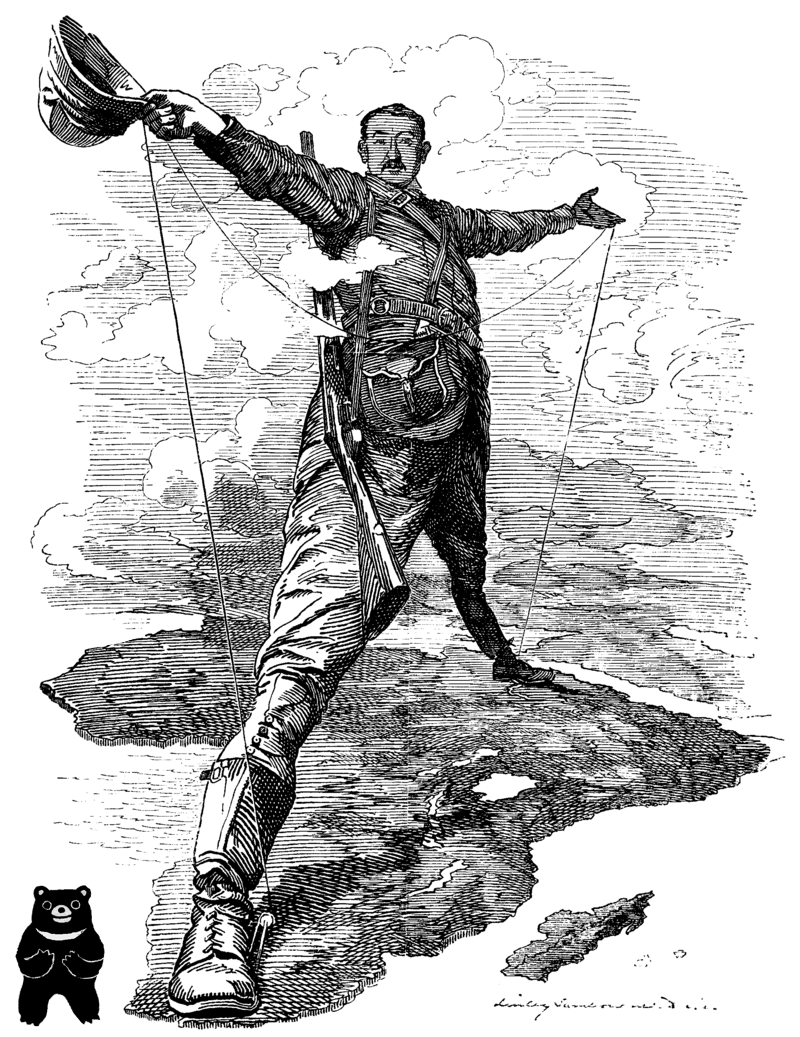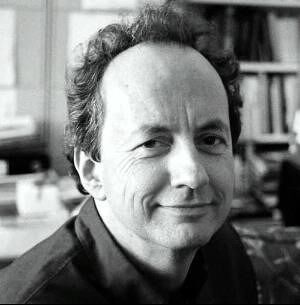
ポストコロニアル人類学
postcolonial anthropology

解 説:池田光穂
★
ポストコロニアルとは、ポスト(後の、という時間的 概念)、コロニアル
(植民地的、という空間的ならびに精神的概念)という造語法によるできた形容詞で、植民地主義以降の、あるいは脱植民地状態(コロニアルな状況の後に/終
焉
後の)という意味がある。つまり、植民地主義(コロニアリズム)後の、以降の秩序や状態、その後に生じる出来事一般などをさす(→「ポストコロニアリズ
ム」「ポストコロニアリティ」)。
★
このポストの本来的意味は、時間的経過の概念として
の、「植民地後の〜」というものに他ならない。しかし、植民地後に
は、さまざまな意味が含まれており、「植民地後の独立」「主権」「主観/主体の確立」「植民地状況が終
わった」「植民地状況を脱却した/しようとする」などの意味の派生が生じており、ポストコロニアルという用語を意識的に使う人たちは、そのようなポストコ
ロニアルという用語が、多義的に使われることを承知で、あるいは確信犯的に、この用語を使っている。
★
そこから転じて、政治的議論としての(1)ポストコロニアリズム
(postcolonialism) とは、コロニアリズム(植民地主義,colonialism) あるいは帝国主義(imperialism)
の伝統が、その後(post-)の歴史的展開なかでも、さまざまな形を通して継続しているという、時間的、空間的、そして精神的概念をめぐる議論のことを
さす。そしてポストコロニアル をめぐる学術的議論としての(2)「ポストコロニアリズ ム(ポ
ストコロニアル理論:Postcolonialismと
も)とは、植民地主義や帝国主義の文化的、政治的、経済的遺産を批判的に学術的に研究するもので、植民地化された人々とその土地に対する人間の支配と搾取
の影響に焦点を当てている。この分野は1960年代に台頭し始め、植民地支配を受けた国の学者たちが植民地支配の残存する影響について論文を発表し、(通
常はヨーロッパの)帝国権力の歴史、文化、文学、言説に対する批判的理論分析を展開した」という。
★ したがって、ポストコロニアルとは、(1)コロニア ル(植民地状況)な状況や支配が終わった後の秩序や世界のことを意味すると同時に、ポストという時間性を引き受けて、現象面から(2)コロニアル(植民地 状況)な状 況や条件、あるいは支配の形態が現在もなお引き続き存続している、時代ならびに社会概念のことを意味する。
☆ポストコロニアル人類学とは、ポストコロニアルという政治的時間[歴史]ならびに地政学的空間の中で生起する人類学(anthropology)のことをいう。
★
そして、例えば「私たちはポストコロニアルな存在になれるのか?」という審問は、上掲の
「コロニアル(植民地状況)な状 況や条件、あるいは支配の形態が現在もなお引き続き存続している」状況のなかで、「コロニア
ル(植民地状況)な状況や支配が終わった後の秩序や世界」を創造し、そのなかで生きるためには、「今何が求めれらているのか?」という、実
践上の課題を我々に突きつけるのである。
★ 「ポストコロニアリティ(post-coloniality)」とは?「ポストコロニア ル」とは、上掲のように植民地後を あらわす形容詞が、名詞化したもので、植民地後の時間的社会的位相をさすと同時に、そのような時間的社会的位相の「性質」をあらわすと同時に、そのような 時間的社会的位相が、到来しているのか?という「批判的分析」が含まれ、次第に「ポストコロニアリズム」における議論に接続していく過程でもある。ポスト コロニアル の名詞化であり、その内実や正確性を表現する「ポストコロニアリティ」とは、ポストコロニアルとはなにか?その具体的事象やより抽象化した概念化そのもの をさす用語である。
★ ポストコロニアルな理論家には次のような理論家がいる:このメンバーには人類学者はいな い:︎▶︎ディペッシュ・チャクラバルティ(Dipesh Chakrabarty) ︎▶︎パルタ・チャタルジー(Partha Chatterjee) ︎▶︎チンウェイズー(Chinweizu) ︎▶︎レオン・ダマス(Leon Damas) ︎▶︎フランツ・ファノン(Frantz Fanon) ︎▶︎C. L. R. ジェームズ(C. L. R. James) ︎▶︎アニャ・ルンバ(Ania loomba) ︎▶︎エドワード・サイード(Edward Said) ︎▶︎ガヤトリ・スピヴァク(Gayatri Spivak) ︎▶︎ロバート・ヤング(Robert Young)
★ロバート・ヤング(Robert Young)
 Robert J. C.
Young Robert J. C.
YoungRobert J. C. Young FBA (born 1950) is a British postcolonial theorist, cultural critic, and historian. Life Young was educated at Repton School and Exeter College, Oxford, where he read for a B.A. and D.Phil., taught at the University of Southampton, and then returned to Oxford University where he was Professor of English and Critical Theory and a fellow of Wadham College. In 2005, he moved to New York University where he is Julius Silver Professor of English and Comparative Literature.[1] From 2015 - 2018, he was Dean of Arts & Humanities at NYU Abu Dhabi. As a graduate student at Oxford, he was one of the founding editors of the Oxford Literary Review, the first British journal devoted to literary and philosophical theory. Young is Editor of Interventions: International Journal of Postcolonial Studies which is published eight times a year.[2] His work has been translated into over twenty languages.[3] In 2013 he was elected a Corresponding Fellow of the British Academy,[4] in 2017 he was elected to an honorary life fellowship at Wadham College, Oxford.[5] Young is currently President of the AILC/ICLA Research Committee on Literary Theory.[6] |
 ロバート・J・C・ヤング ロバート・J・C・ヤングロバート・J・C・ヤング FBA(1950年生まれ)は、イギリスのポストコロニアル理論家、文化評論家、歴史学者である。 経歴 ヤングはレプトン校とオックスフォード大学エクセター・カレッジで教育を受け、そこで文学士号と博士号を取得した。サザンプトン大学で教鞭をとった後、 オックスフォード大学に戻り、英語と批評理論の教授、ワドハム・カレッジのフェローとなった。2005年、ニューヨーク大学に移り、ジュリアス・シルバー 英語・比較文学教授に就任した[1]。2015年から2018年まで、ニューヨーク大学アブダビ校の芸術・人文科学学部長を務めた。 オックスフォード大学の大学院生だった頃、文学と哲学理論を専門とする英国初の学術誌『オックスフォード・リテラリー・レビュー』の創刊編集者の一人と なった。ヤングは、『Interventions: 年に8回発行される『Interventions: International Journal of Postcolonial Studies』の編集者でもある[2]。彼の作品は20以上の言語に翻訳されている[3]。2013年には英国学士院の通信会員に選出された[4]。 2017年にはオックスフォード大学ワドハム・カレッジの名誉終身会員に選出された[5]。オックスフォード大学ワドハム・カレッジの名誉終身研究員に選 出された[5]。ヤングは現在、AILC/ICLA文学理論研究委員会の委員長を務めている[6]。 |
|
Works Young's work has been described as being 'at least partially instrumental in the radicalisation of postcolonialism'.[2] His first book, White Mythologies: Writing History and the West (1990)[7] argues that Marxist philosophies of history had claimed to be world histories but had really only ever been histories of the West, seen from a Eurocentric—even if anti-capitalist—perspective. Offering a detailed critique of different versions of European Marxist historicism from Lukács to Jameson, Young suggests that a major intervention of postcolonial theory has been to enable different forms of history and historicisation that operate outside the paradigm of Western universal history. While postcolonial theory uses certain concepts from post-structuralism to achieve this, Young argues that post-structuralism itself involved an anti-colonial critique of Western philosophy, pointing to the role played by the experience of the Algerian War of Independence in the lives of many French philosophers of that generation, including Derrida, Cixous, Lyotard, Althusser, and Bourdieu. White Mythologies was the first book to characterise postcolonial theory as a field in itself, and to identify the work of Edward W. Said, Gayatri Chakravorty Spivak, Homi K. Bhabha and the Subaltern Studies historians as its intellectual core.[citation needed] |
著作 ヤングの著作は、「ポストコロニアリズムの急進化に少なくとも部分的に貢献した」と評されている[2]。彼の最初の著書『White Mythologies: (1990年)[7]では、マルクス主義の歴史哲学は世界史であると主張しているが、実際には反資本主義的視点を持つヨーロッパ中心主義の観点から見た西 洋の歴史にすぎない、と論じている。ルーカスからジェイムソンに至るヨーロッパのマルクス主義の歴史主義のさまざまなバージョンについて詳細な批判を展開 したヤングは、ポストコロニアル理論の主な介入は、西洋の普遍的な歴史というパラダイムの外で機能するさまざまな形式の歴史と歴史化を実現することだった と示唆している。ポストコロニアル理論は、ポスト構造主義の概念を援用してこれを達成しているが、ヤングは、ポスト構造主義自体が西洋哲学に対する反植民 地主義的批判を含んでいたと主張している。その根拠として、デリダ、シクスー、リオタール、アルチュセール、ブルデューなど、同世代の多くのフランス人哲 学者の人生において、アルジェリア独立戦争の経験が果たした役割を挙げている。『White Mythologies』は、ポストコロニアル理論をひとつの分野として特徴づけた最初の著作であり、エドワード・W・サイード、ガヤトリ・チャクラヴォ ルティ・スピヴァク、ホミ・K・ババ、サバルタン・スタディーズの歴史学者の業績をその知的中核として特定した[要出典]。 |
|
In Colonial Desire (1995)[8] Young examined the history of the concept
of 'hybridity', showing its genealogy through nineteenth-century racial
theory and twentieth-century linguistics, prior to its
counter-appropriation and transformation into an innovative
cultural-political concept by postcolonial theorists in the 1990s.
Young demonstrates the extent to which racial theory was always
developed in historical, scientific and cultural terms, and argues that
this complex formation accounts for the ability of racialised thinking
to survive into the modern era despite all the attempts made since 1945
to refute it. The most significant mistake that has been made, he
suggests, involves the assumption that race was developed in the
nineteenth-century purely as a 'science' which can be challenged on
purely scientific grounds. Having deconstructed 'white Marxism' through the lens of postcolonial theory in White Mythologies, in Postcolonialism: An Historical Introduction (2001),[9] Young charted the genealogy of postcolonial theory in the very different trajectory of Marxism as the major ideological component of twentieth-century anti-colonial struggles. The book provides the first genealogy of the anticolonial thought and practice which form the roots of postcolonialism,[10] tracing the relation of the history of the national liberation movements to the development of postcolonial theory.[11] Stressing the significance of the work of the Third International, as well as Mao Zedong's reorientation of the landless peasant as the revolutionary subject, Young points to the importance of the Havana Tricontinental of 1966 as the first independent coming together of the three continents of the South—Africa, Asia and Latin America—in political solidarity, and argues that this was the moment in which what is now called 'postcolonial theory' was first formally constituted as a specific knowledge-base of non-Western political and cultural production. |
『Colonial Desire』(1 1995年)[8]
ヤングは「ハイブリッド性」という概念の歴史を検証し、19世紀の人種理論や20世紀の言語学を通じてその系譜を示し、1990年代にポストコロニアル理
論家たちによってその概念が革新的な文化政治的概念として再解釈・再構築されるまでの経緯を明らかにした。ヤングは、人種理論が常に歴史的、科学的、文化
的な観点から発展してきたことを示し、この複雑な形成が、1945年以降、人種差別的思考を否定する試みがなされてきたにもかかわらず、それが現代まで生
き延びている理由であると主張している。彼が指摘する最も重大な過ちは、人種が19世紀に純粋に「科学」として発展し、純粋に科学的根拠に基づいて反論で
きるという考えに基づいていることである。 『White Mythologies』でポストコロニアル理論の観点から「白人マルクス主義」を解体した後、ヤングは『Postcolonialism: An Historical Introduction』(2001年)[9]で、20世紀の反植民地闘争における主要なイデオロギー的要素であるマルクス主義の全く異なる軌跡の中 で、ポストコロニアル理論の系譜を明らかにした。この本は、ポストコロニアリズムのルーツとなる反植民地主義思想と実践の最初の系譜を提供しており、 [10] 民族解放運動の歴史とポストコロニアリズム理論の発展との関係を追跡している[11]。第三インターナショナルの活動と、毛沢東による土地を持たない農民 を革命の主題として再方向づけることの重要性を強調し、 ヤングは、1966年のハバナ・トライコンティネンタルが、南アフリカ、アジア、ラテンアメリカの3大陸が初めて政治的連帯のもとに集まった独立イベント であったことの重要性を指摘し、これが「ポストコロニアル理論」と呼ばれるものが、非西洋の政治・文化生産の特定の知識基盤として初めて正式に構成された 瞬間であったと主張している。 |
| n Postcolonialism: A Very Short Introduction (2003)[12] Young links
this genealogy of postcolonialism to the contemporary activism of the
New Social Movements in non-Western countries. Intended as an
introduction to postcolonialism for the general reader, the book is
written in a highly accessible style and unorthodox format, mixing
history with fiction, cultural analysis with moments of poetic
intensity that stage and evoke postcolonial experience rather than
merely describe it. Instead of approaching postcolonialism through its
often abstract and esoteric theories, the book works entirely out of
particular examples. These examples emphasise issues of migration,
gender, language, indigenous rights, 'development' and ecology as well
as addressing the more usual postcolonial ideas of ambivalence,
hybridity, orientalism and subalternity. In The Idea of English Ethnicity (2008)[13] Young returned to the question of race to address an apparent contradiction—the idea of an English ethnicity. Why does ethnicity not seem to be a category applicable to English people? To answer this question, Young reconsiders the way that English identity was classified in historical and racial terms in the nineteenth century. He argues that what most affected this was the relation of England to Ireland after the Act of Union of 1800–1. Initial attempts at excluding the Irish were followed by a more inclusive idea of Englishness which removed the specificities of race and even place. Englishness, Young suggests, was never really about England at all,[14] but was developed as a broader identity, intended to include not only the Irish (and thus deter Irish nationalism) but also the English diaspora around the world—North Americans, South Africans, Australians and New Zealanders, and even, for some writers, Indians and those from the Caribbean. By the end of the nineteenth century, this had become appropriated as an ideology of empire. The delocalisation of the country England from ideas of Englishness (Kipling's "What do they know of England who only England know?") could account for why recent commentators have found Englishness so hard to define—while at the same time providing an explanation of why some of the most English of Englishmen have been Americans. On the other hand, Young argues, its broad principle of inclusiveness also helps to explain why Britain has been able to transform itself into one of the more integrated, or hybridized, of modern multiethnic nations.[15] In 2015, together with Jean Khalfa, Young published a 680-page collection of writings by Frantz Fanon, the first new work by Fanon to be published in over 50 years, Écrits sur l’aliénation et la liberté[16] which includes two previously unpublished plays, together with psychiatric and political essays, letters, editorials from the weekly journals at the hospitals at Saint Alban (Trait d'union) and Blida (Notre Journal), as well as a complete list of Fanon's library and his annotations to his books.[17] |
『ポストコロニアリズム:超入門』(2003年)[12]で、ヤングはポストコロニアリズムの系譜を、非西洋諸国の新しい社会運動の現代的活動と結びつけ
ている。一般読者向けのポストコロニアリズム入門として書かれたこの本は、非常に読みやすく、型にはまらないスタイルで書かれており、歴史とフィクショ
ン、文化分析と詩的な表現を織り交ぜ、ポストコロニアリズムの経験を単に描写するのではなく、それを舞台化し、喚起するような構成となっている。この本
は、抽象的で難解な理論を通してポストコロニアリズムを論じるのではなく、具体的な事例をすべて取り上げて論じている。これらの事例は、移住、ジェン
ダー、言語、先住民の権利、「開発」、エコロジーの問題を強調するとともに、両義性、ハイブリッド性、オリエンタリズム、サブオルタナリティといった、よ
り一般的なポストコロニアリズムの概念にも言及している。 『The Idea of English Ethnicity』(2008年)[13]でヤングは、人種というテーマに立ち返り、一見矛盾しているように見える「イングランド民族」という概念につ いて考察している。 なぜイングランド民族という概念は、イングランド人にとって当てはまらないカテゴリーであるように見えるのだろうか? この疑問に答えるため、ヤングは19世紀にイングランド人のアイデンティティが歴史的、人種的な観点からどのように分類されていたかを再考している。彼 は、1800年から1801年の連合法以降、イングランドとアイルランドの関係がこの考え方に最も影響を与えたと主張している。当初、アイルランド人を排 除しようとする動きがあったが、その後、人種や場所といった特定の要素を排除した、より包括的なイングランド人としての考え方が生まれた。ヤングは、イン グランドらしさとは実際にはイングランドについてのことでは決してなかったと主張している[14]。イングランドらしさは、より広範なアイデンティティと して発展し、アイルランド人(そしてアイルランド民族主義の抑止)だけでなく、北米、南アフリカ、オーストラリア、ニュージーランド、さらには一部の作家 にとってはインドやカリブ海諸国の人々も含むことを意図していた。19世紀末までに、これは帝国のイデオロギーとして定着した。イングランドという国を、 イングランドらしさという概念から切り離す(キップリングの「イングランドを知る者はイングランドを知るのみ」という一節)ことで、最近の論評家たちがイ ングランドらしさを定義するのが難しいと感じている理由を説明できる。一方、ヤングは、その包括的な原則が、イギリスが現代多民族国家の中でもより統合さ れた、あるいはハイブリッド化された国家へと変貌を遂げることができた理由も説明していると主張している[15]。 2015年、ヤングはジャン・カルファとともに、50年ぶりに出版されたファン・ファノンの新作『 50年ぶりに出版された『隷属と自由についての諸論考』[16]には、2つの未発表戯曲、精神医学や政治に関するエッセイ、手紙、サン・アルバン病院 (Trait d'union)とブリダ病院(Notre Journal)の週刊誌に掲載された論説、ファノンの蔵書リスト、ファノンが書籍に付けた注釈などが含まれている[17]。 |
| Selected publications Other books Empire, Colony, Postcolony. Oxford and Malden, Mass: Wiley-Blackwell, 2015. Paperback: ISBN 978-1405193405, 1405193409, 978-1405193559, 1405193557. LCCN [1] OCLC 885229460. Torn Halves: Political Conflict in Literary and Cultural Theory. Manchester: Manchester University Press. 1996. (Hardcover: ISBN 978-0-7190-4776-3. Paperback: ISBN 978-0-7190-4777-0.) LCCN 95030849 OCLC 32822735. An online copy may be available from HathiTrust. Editions Frantz Fanon. Écrits sur l’aliénation et la liberté, Œuvres II. Textes réunis, introduits et présentés par Jean Khalfa et Robert JC Young. Paris: La Découverte, 2016. ISBN 978-2707186386, 2707186384. LCCN [2] OCLC 930770745. Frantz Fanon. Alienation and Freedom eds Jean Khalfa and Robert J.C. Young, trans. Steve Corcoran. London: Bloomsbury, 2018. Edited works Untying the Text: A Post-Structuralist Reader. edited, with an introduction. London; Boston: Routledge & Kegan Paul. 1981. (Hardcover: ISBN 978-0-7100-0804-6. Paperback: ISBN 978-0-7100-0805-3.) LCCN 81212202 OCLC 7964743. Post-Structuralism and the Question of History. edited, with an introduction, with Derek Attridge and Geoff Bennington. Cambridge; New York: Cambridge University Press. 1987. ISBN 978-0-521-32759-6. LCCN 86012972. OCLC 13643529. Prefaces 'Sartre: The African Philosopher’. Preface to Jean-Paul Sartre, Colonialism and Neo-colonialism. Trans. Azzedine Haddour, Steve Brewer and Terry McWilliams. London; New York: Routledge, 2001. (Hardcover: ISBN 978-0-415-19145-6. Paperback: ISBN 978-0-415-19146-3.) LCCN 00045940. OCLC 45172634. 'Poetica del mutamento culturale radicale'. Preface to Frantz Fanon, Scritti politici. L'anno V della rivoluzione algerina, vol. 2. Trans. Miguel Mellino. Roma: DeriveApprodi, 2007. ISBN 978-88-89969-16-8. OCLC 799775650. Electronic publications ‘Le pagine che bruciano il passato’, Caffé Europa 292, 09.01.06. ‘The Violent State’, Naked Punch, Supplement 02, 2009. 'What is the Postcolonial?', Ariel 40:1 (2009) 13–25, |
主な出版物 その他の書籍 『帝国、植民地、ポストコロニー』(Empire, Colony, Postcolony)オックスフォードおよびマサチューセッツ州マルデン:ワイリー・ブラックウェル、2015年。ペーパーバック:ISBN 978-1405193405、1405193409、978-1405193559、1405193557。LCCN [1] OCLC 885229460. Torn Halves: Political Conflict in Literary and Cultural Theory. Manchester: Manchester University Press. 1996. (ハードカバー:ISBN 978-0-7190-4776-3。ペーパーバック:ISBN 978-0-7190-4777-0。)LCCN 95030849 OCLC 32822735。オンライン版はHathiTrustから入手できる可能性がある。 エディション フランツ・ファノン。「疎外と自由に関する著作集」第2巻。ジャン・カルファとロバート・J・C・ヤングによる編集、序文、解説。パリ:ラ・デクベール、 2016年。ISBN 978-2707186386、2707186384。LCCN [2] OCLC 930770745。 フランツ・ファノン著『疎外と自由』ジャン・カルファとロバート・J.C.ヤング編、スティーブ・コーコラン訳。ロンドン:ブルームズベリー、2018 年。 編集作品 『テキストを解きほぐす:ポスト構造主義の読者』編著、序文。ロンドン、ボストン:ルートレッジ&キーガン・ポール。1981年。(ハードカバー: ISBN 978-0-7100-0804-6。ペーパーバック:ISBN 978-0-7100-0805-3。)LCCN 81212202、OCLC 7964743。 ポスト構造主義と歴史の問題。編集、序文、デレク・アトリッジ、ジェフ・ベニントンとの共著。ケンブリッジ、ニューヨーク: ケンブリッジ大学出版局。1987年。ISBN 978-0-521-32759-6。LCCN 86012972。OCLC 13643529。 序文 「サルトル:アフリカの哲学者」。ジャン=ポール・サルトル著『植民地主義と新植民地主義』の序文。アズディン・ハドゥール、スティーブ・ブリューワー、 テリー・マクウィリアムズ訳。ロンドン、ニューヨーク:Routledge、2001年。(ハードカバー:ISBN 978-0-415-19145-6。ペーパーバック:ISBN 978-0-415-19146-3。)LCCN 00045940。OCLC 45172634。 「急進的文化変革の詩学」。『Frantz Fanon, Scritti politici. L'anno V della rivoluzione algerina』第2巻の序文。Miguel Mellino訳。Roma: DeriveApprodi、2007年。ISBN 978-88-89969-16-8。OCLC 799775650。 電子出版物 「過去を焼き尽くすページ」、Caffé Europa 292、2006年1月9日。 「暴力的な国家」、Naked Punch、Supplement 02、2009年。 「ポストコロニアルとは何か」、Ariel 40:1(2009年)13-25ページ。 |
| https://en.wikipedia.org/wiki/Robert_J._C._Young | より詳しくは「ロバート・J・C・ヤング」を参照 |
リ ンク先
文 献
そ
の他の情報
Copyleft, CC, Mitzub'ixi Quq Chi'j, 1996-2099





++
Copyleft, CC, Mitzub'ixi Quq Chi'j, 1996-2099
☆
 ☆
☆